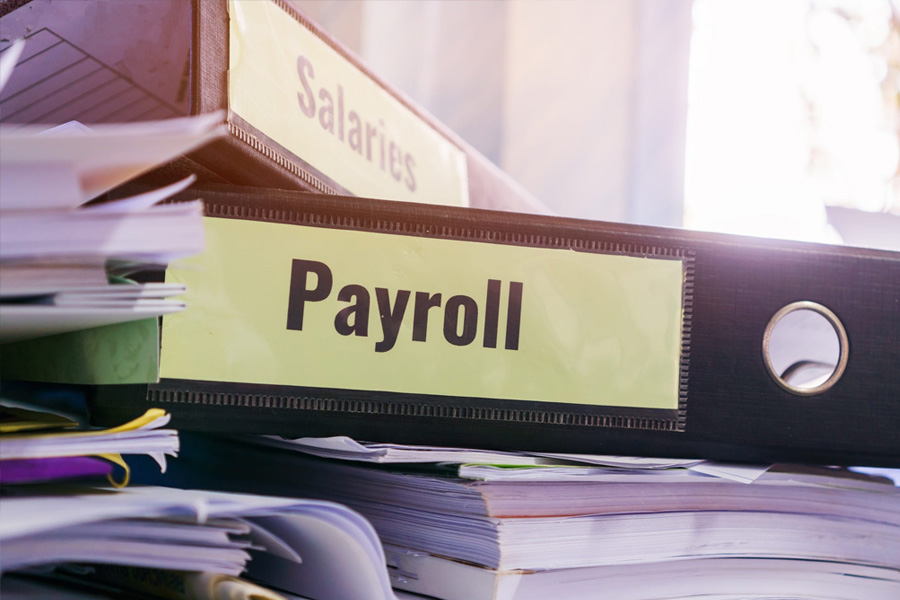Payroll is one of the crucial organisational functions that are subject to compliance with various regulatory frameworks. This legal obligation covering payroll solutions is not subject to the UAE but all around the world.
Many factors influence payroll calculation; some are mandated by law, and some the company voluntarily offers to improve employee engagement within human resource management.
At BSH, our outsourced payroll solutions and platforms are carefully designed to meet the precise payroll needs of organisations, regardless of their sizes, types, and nature. Compliance, accuracy, and efficiency are the key factors governing all our payroll and human resource management solutions.
One of the most common questions we receive from our clients is whether our service includes End-Of-Service (EOS) gratuity and final settlement calculations. This article will provide a comprehensive overview of the end-of-service gratuity and final settlement calculations and how we cater to them within our services.
What Exactly Is End-of-Service Gratuity (EOSG) Benefit?
All companies in the UAE are required by law to pay an "End Of Service Gratuity (EOSG)" to employees at the end of their employment, provided that the employment exceeds one year. This gratuity is payable as a lump sum and is based on the employee’s salary package, length of service, etc.
Companies need to plan for their EOSG because if they fail to uphold them, it can represent a significant financial risk for UAE employers and employees.
Having competitive benefits packages at the end of employment or termination is an important factor that attracts employees and, most importantly, keeps them loyal to the company. It also has a direct influence on reducing employee turnover.
While employers don’t have a direct statutory obligation to accrue EOSG liabilities in their accounts or to hold funds securely off the balance sheet, failing to comply can impact employees’ confidence in the protection of their EOS benefits package from employers during insolvency or inflation.
Final Settlement Calculations: What Are They?
As the word states, this type of calculation sums the due amounts for an employee leaving, quitting, or being terminated by the company. It includes the computation of all compulsory payments that should be released as part of the employee’s payroll at the end of their employment. This includes but is not limited to:
-
End-of-service gratuity
-
Unprocessed salary
-
Repatriation ticket, if applicable
-
Notice period pay if applicable.
-
Any unutilised leave, i.e. vacation pay
-
Any other benefits or compensation mentioned in the employment contract
-
Any other outstanding payment or deduction
According to the new UAE Labor Law Federal Decree-Law No. 33 of 2021, employers should clear all End of Service Benefits within 14 days of an employee’s last day. The previous statute covering this legislation did not have such a deadline.

How Does The EOSG Calculation In UAE Work?
Employees are eligible for EOSG only after completing one year of service at the company. It is calculated based on the employee’s basic salary on his or her last day of work or termination and the years of service. This excludes all allowances, such as housing, travel, and utilities.
In a nutshell, it works like this:
-
Employees who have worked for less than one year are not entitled to any gratuity pay.
-
Those who have worked for 1-5 years receive 21 days of the last basic salary for each year of employment
-
Employees who have worked for more than 5 years are entitled to 30 days of the last basic salary for each year of employment.
The final year calculation will be based on the number of days completed in that year. The total end-of-service gratuity payment should not exceed the value of two years of the last basic salary.
New End of Service Investment Scheme
Unlike many other organizational functions, human resource management and payroll are inevitably subject to regulatory compliance. Failure to adhere to these can lead to expensive fines and penalties and, in worse cases, damage to an organisation’s reputation and credibility.
As part of its initiatives to make Dubai and the UAE a good place to work and live, the government does its best to protect and increase the rights of employees. Their recent changes to the EOSG scheme, by introducing UAE Cabinet Decision No. 96 of 2023, as of 10 October 2023, is a good reflection of this nature. The recent amendment has established a voluntary alternative scheme for non-GCC national employees based in the UAE and within certain UAE-free zones.
This allows employees to opt into a voluntary end-of-service benefits scheme – as an alternative to the existing EOSG payment. This scheme operates based on monthly contributions made by employers to an investment fund through a subscription.
How BSH Helps You Simplify End-of-Service (EOS) Gratuity and Final Settlement Calculations
As a leading provider of human resource management and payroll solutions, we believe time is money for businesses. Our core objective is to take the excess responsibility companies have in managing routine and compliance-related payroll tasks and give them more time to focus on other key areas of business operations.
Our payroll solutions covering human resource management include accurate and efficient EOS gratuity and final settlement calculations for UAE businesses, complying with the latest regulations. We have a dedicated team of hand-picked professionals who handle outsourced payroll solutions, which helps us ensure we provide the best personalised services for your company.
With the help of cutting-edge software and technology, our team thoroughly understands your company’s payroll nature and human resource management strategies before we design a tailor-made execution plan.
All our services, including outsourced payroll and software solutions, are designed with the goal towards timely compliance with regulatory changes in the UAE. Through this, we believe we give our clients the ultimate peace of mind, knowing their payroll responsibilities are securely managed by professionals who are the best at what they are doing.





